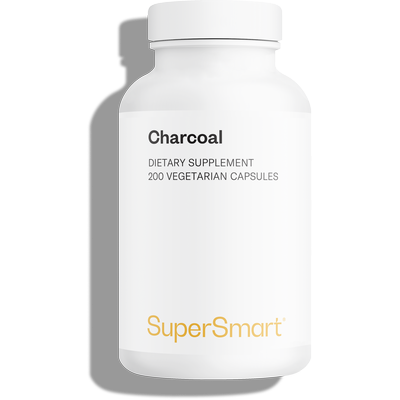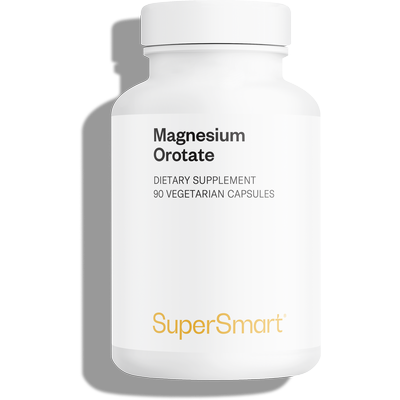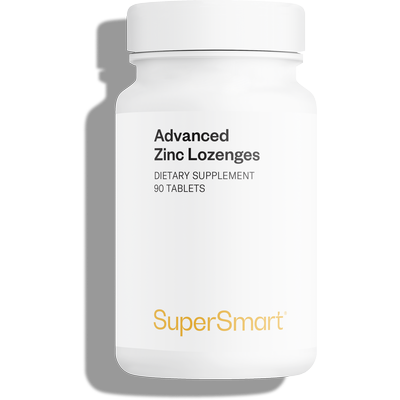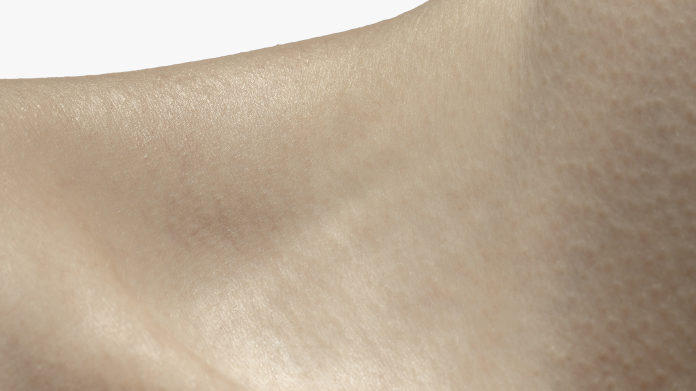The 5 best natural antiperspirants
Perspiration is a natural and essential phenomenon for the body. However, it can be too much or too smelly, and become a source of discomfort. Discover the 5 most effective natural antiperspirants, taken orally or applied topically.

What is perspiration?
Perspiration is a natural process by which the skin secretes sweat, enabling the body to regulate its internal temperature.
Humans need to maintain a stable internal temperature of around 37°C.
When body temperature rises (due to heat, physical exertion or stress), the body begins to perspire, i.e. to release sweat.
Sweat is a liquid produced by the sweat glands, made up of water, electrolytes, lactate and urea.
This liquid evaporates by absorbing the heat present on the surface of the skin, which is essential for the transition from the liquid to the gaseous state. This evaporation process helps to cool the body.
The perspiration process is essential to prevent the body from overheating, and should never be completely blocked.
Causes of excessive or smelly perspiration
Some people sweat more than others (a condition known as excessive sweating or hyperhidrosis), and some produce odours when they sweat that are considered more unpleasant (known as malodorous sweating or bromhidrosis).
Hyperhidrosis and bromhidrosis can be triggered by various factors such as stress, hormonal changes, diet, certain medications, medical conditions or even genetic predisposition.
The resulting inconveniences (strong body odour, stains on clothing, skin irritations or even skin infections, etc.) can cause social embarrassment or discomfort.
How can I combat perspiration and unpleasant odours?
To begin with, if you're looking to reduce your perspiration and/or the unpleasant odours it produces, you should:
- adopt rigorous hygiene, cleansing your skin every day with a mild, antibacterial soap to eliminate the bacteria responsible for unpleasant odours;
- wear clothes made from natural fibres (such as cotton or linen) that are not too tight, to help sweat evaporate and limit the humidity that encourages odours to develop;
- avoid spicy foods, garlic, onions and alcohol, all of which can stimulate the sweat glands and intensify body odour; and
- apply commercial deodorants and antiperspirants to the areas concerned (armpits, chest, back, etc.), always avoiding mucous membranes, to limit perspiration and unpleasant odours. If possible, choose alcohol-free products to prevent irritation.
If the symptoms persist, don't hesitate to consult a dermatologist, who will be able to identify one or more underlying causes.
Below, you can discover the 5 most powerful natural alternatives to perspiration, which are effective and good for your health, and can be applied locally or taken orally, depending on the case.
The 5 most powerful natural antiperspirants
Sage: an excellent natural antiperspirant
Sage (Salvia officinalis) is a well-known aromatic plant that helps regulate perspiration (1).
It works by slowing down the activity of the sweat glands, as its astringent tannins effectively reduce excessive sweat production.
At the same time, its antioxidant and anti-inflammatory properties help to calm skin reactions linked to perspiration.
Its benefits are particularly effective in cases of perspiration caused by hormonal factors (such as the menopause).
Sage can be taken as an infusion, at the rate of one cup of sage tea a day (containing 1 to 1.5 g of dried leaves infused in 200 to 250 ml of water).
Do not exceed 2 to 3 cups a day, unless advised otherwise by your doctor, and avoid sage if you are pregnant or breast-feeding.
Magnesium: ideal for combating stress
When we're stressed, our nervous system is activated, stimulating the sweat glands and increasing the production of sweat.
An adequate intake of magnesium, a key mineral that contributes to the normal functioning of the nervous system, helps to reduce this excessive reaction by calming the nervous system and reducing sensitivity to stress (2).
Magnesium is found naturally in foods such as oilseeds, dark chocolate, oily fish and wholegrain cereals.
Taking a magnesium supplement can considerably increase your intake, particularly if you choose a highly bioavailable form such as magnesium orotate (for example, with the supplement Magnesium Orotate).
Bicarbonate of soda: effective against unpleasant odours
Bicarbonate of soda is an excellent ally for freshness and can be be applied topically to combat dampness and unpleasant body odours (3).
It acts as an effective absorbent agent, while its alkaline properties neutralise the acids produced by perspiration.
How do I use it? Simply mix a small amount of bicarbonate of soda with water or coconut oil to create a paste, then apply it to the armpits.
You can also add a few drops of a suitable essential oil for fragrance.
However, it's advisable to limit the frequency of use and to carry out a test on a small area of skin, as both bicarbonate and essential oil can be irritating, especially to sensitive skin.
Zinc: effective against bacteria that alter sweat
Taken orally, zinc is a mineral that supports the immune system and helps limit the proliferation of bacteria that transform sweat into smelly compounds (4).
Zinc also helps to maintain normal skin and protect cells against oxidative stress, reducing skin imbalances that can aggravate unpleasant body odours.
Food sources of zinc include seafood, meat and offal, dairy products and cocoa.
Zinc supplements will help increase your intake. Ideally, opt for zinc orotate for increased bioavailability and greater effectiveness (this is the form used in the excellent chewable zinc supplement Advanced Zinc Lozenges).
Witch hazel: helps reduce perspiration and body odour naturally
Witch hazel (Hamamelis virginiana) is a sumptuously coloured shrub well-known for supporting vascular health.
Applied topically, it is thought to combat perspiration problems thanks to its astringent properties, which tighten pores and reduce sweat production. It is also thought to inhibit the proliferation of bacteria responsible for unpleasant body odours (5).
For these purposes, witch hazel is generally used in the form of floral water or extract, applied to the skin with a cotton pad. It is generally ideal for sensitive skin.
You now have several natural options for tackling perspiration problems, allowing you to stay dry while protecting your health! Find out more about arrowroot, activated charcoal and tea tree oil.
References
- Zeidabadi A, Yazdanpanahi Z, Dabbaghmanesh MH, Sasani MR, Emamghoreishi M, Akbarzadeh M. The effect of Salvia officinalis extract on symptoms of flushing, night sweat, sleep disorders, and score of forgetfulness in postmenopausal women. J Family Med Prim Care. 2020 Feb 28;9(2):1086-1092. doi: 10.4103/jfmpc.jfmpc_913_19. PMID: 32318472; PMCID: PMC7114003.
- Pickering G, Mazur A, Trousselard M, Bienkowski P, Yaltsewa N, Amessou M, Noah L, Pouteau E. Magnesium Status and Stress: The Vicious Circle Concept Revisited. Nutrients. 2020 Nov 28;12(12):3672. doi: 10.3390/nu12123672. PMID: 33260549; PMCID: PMC7761127.
- Teerasumran P, Velliou E, Bai S, Cai Q. Deodorants and antiperspirants: New trends in their active agents and testing methods. Int J Cosmet Sci. 2023 Aug;45(4):426-443. doi: 10.1111/ics.12852. Epub 2023 Mar 21. PMID: 36896776; PMCID: PMC10946881.
- Ågren MS, Ghathian KSA, Frederiksen AKS, Bjerrum MJ, Calum H, Danielsen PL, Menon J, Hædersdal M, Jorgensen LN. Zinc Oxide Inhibits Axillary Colonization by Members of the Genus Corynebacterium and Attenuates Self-perceived Malodour: A Randomized, Double-blind, Placebo-controlled Trial. Acta Derm Venereol. 2020 May 28;100(10):adv00145. doi: 10.2340/00015555-3499. PMID: 32399578; PMCID: PMC9137363.
- https://www.healthline.com/health/deodorant-alternatives
3 Hours
Quick delivery
Quick delivery
Caroline Saelens
8 Hours
High quality
In my experience the products will not disappoint you.
Fred Laan
3 Days
Super smart is really…super !
I would like to share my excellent experience with the company’s fast and efficient customer service. Even though I was calling from abroad, I was able to reach them relatively quickly. They responded to all my emails promptly and kept me consistently informed about the status of my order. When I needed assistance correcting a mistake I had made with my order, Ms. Lorie handled the issue immediately and very professionally. Thanks to their support and efficiency, I received my Super Smart products in Greece much faster than expected. Thank you very much for the outstanding service!
Kazanti Kleopatra
6 Days
Ordering and delivery is easy and fast
Ordering and delivery is easy and fast
Peter
8 Days
Simple and quick :-)
My order was delivered quickly, and I'm satisfied with the product! It was lot less fuss compared with some things I've ordered.
DEL Jacqueline
8 Days
Excellent quality products & customer…
Excellent quality products & customer service & care …thank you!
Giovanna Escalera
10 Days
great experience
Easy ordering, fast deliver, very professionally.
Natasa
13 Days
this company and its products are…
this company and its products are perfect: I have been their customer for three years , prices are reasonable for the high quality they offer , the products are of very good quality not just plainly "normal" , delivery is quite fast. we are very satisfied with them.
Gabriel Diacakis
14 Days
TOP service TOP products will buy again…
TOP service TOP products will buy again and again
PINOTTI Giorgio
16 Days
Trustworthy company with tested products
Trustworthy company with tested products
Trusted
20 Days
Efficiency and speed
Efficiency and speed
Cuccie
22 Days
GOOD BRAND IN FOOD COMPLEMENTS
GOOD BRAND IN FOOD COMPLEMENTS - SERIOUS WITH GOOD DOCUMENTS AND DETAILS SCIENTIST. AND SERIOUS HONNEST COMMERZIALISATION. I HAVE TRUST IN THEIR PRODUCTS.
FENOGLIO Guy
23 Days
Very good experience
Very good experience, the products arrived in time, in perfect condition and are good quality. Thank you.
GABI TIRCOCI
29 Days
very good expereince
very good expereince
Jelena Đaković
29 Days
Very good products.
Very good products.
Agnes BENDSAK
of experience
your money back
##montant## purchase







